Ireland's history as Eurovision royalty
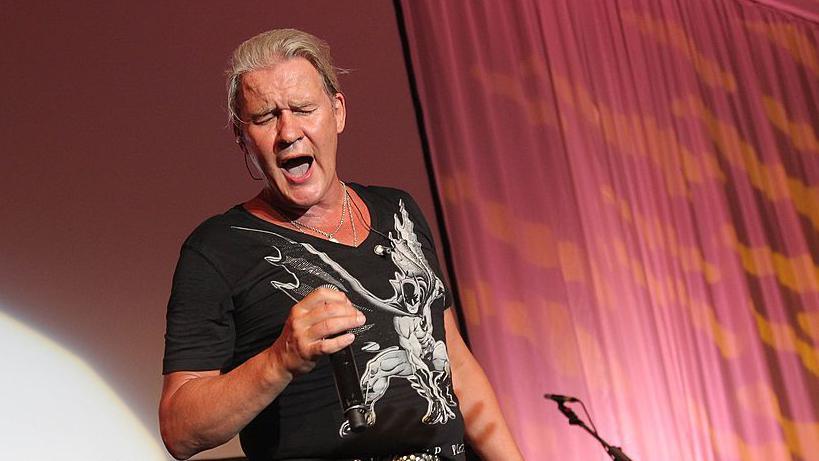
Johnny Logan was the first entry to win Eurovision twice
- Published
What’s one thing Ireland and Sweden have in common?
Eurovision royalty.
During the first semi-final of Eurovision in Malmo on Tuesday, Sweden’s pop diva Loreen was introduced as the Queen of Eurovision.
But before there was the Queen, there was the King.
Ireland’s Johnny Logan was crowned after becoming the first contestant to win the competition twice with his 'What’s another year?' and 'Hold me now' entries.
Logan won both as a singer in 1980 and 1987 and as a composer in 1992.
The 69-year-old Irish songster had the crowd in a state of ‘Euphoria’ on Tuesday as he performed his rendition of the Swedish 2012 winning song by Loreen.
Who is Johnny Logan?
Music runs deep in the blood of Johnny Logan, who was born Seán Patrick Michael Sherrard, the son of a Londonderry tenor singer in Australia.
After moving with his family back to Ireland, Logan began composing his own songs at the age of 13, and had his first single and Eurovision entry at the age of 24.
Six years later, Logan won the 1980 Eurovision contest with 'What’s another year?', which soon became a top European hit and UK number one.
After a failed comeback in 1983, Logan made another attempt at Eurovision 1987 and with his self-penned song 'Hold Me Now', which won the contest and crowned Logan as the first person to win the contest twice.
Logan is also one of only five composers to have written two winning songs.
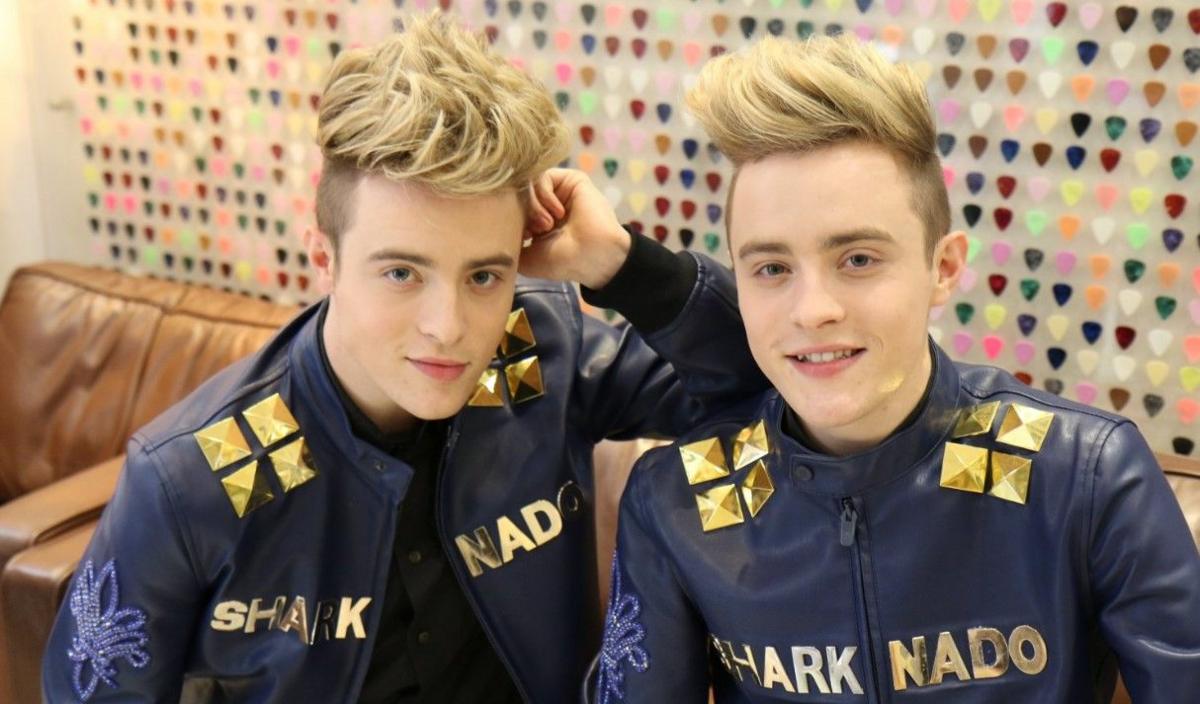
Jedward were the country's entry two years in a row
While Logan put Ireland on the Eurovision map, there is an abundance of past successes in the competition hailing from the emerald isles.
In 1970, Dana, otherwise known as the "original Derry girl", was the first of Ireland’s winners.
Since then there have been six wins for Ireland, and top five entrants on 18 occasions - making it the most successful country overall.
Ireland had an extraordinary run of success in the 1990s with three consecutive wins.
In 1992 with Linda Martin’s 'Why me', in 1993 with Niamh Kavanagh’s 'In Your Eyes' and in 1994 when Paul Harrington’s 'Rock n Roll Kids' took gold.
Another notable Eurovision run for Ireland was led by the coiffured Dublin twins collectively known as Jedward.
Despite never securing a win in the competition, the duo went on to take the showbiz world by storm under the management of Louis Walsh.
Notable, not for his success but more for his subversive tactics, Ireland’s 2008 entry Dustin the Turkey had some viewers spitting feathers.
Dustin was received on stage with some boos, with Dana, who was a panellist at the time, saying that Ireland would be better withdrawing from the competition than sending Dustin.
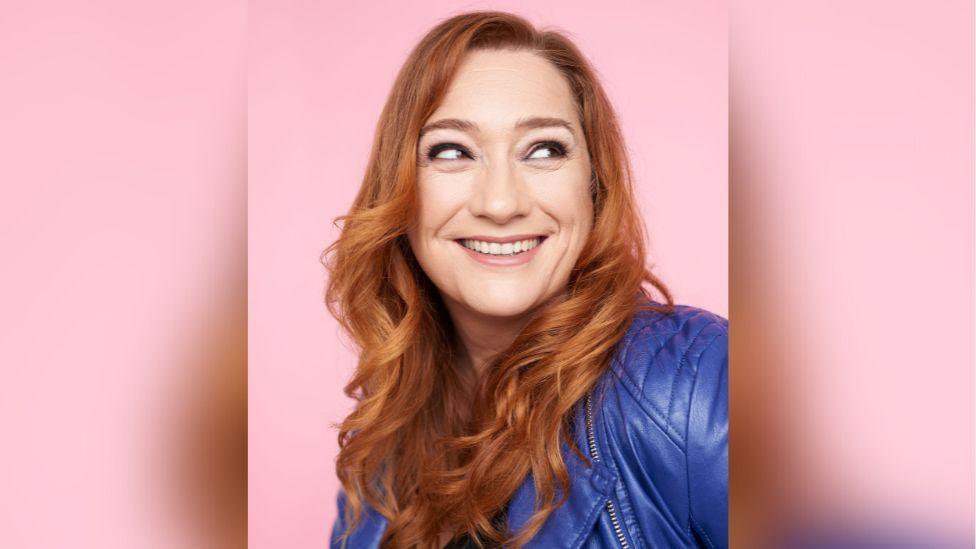
The 1993 Eurovision Song Contest was held in Cork where Niamh sang 'In Your Eyes' to clinch a second consecutive win for Ireland.
'Eurovision family'
Speaking to BBC News NI, former winner Niamh Kavanagh said that her Eurovision win was pivotal in her career.
She said she became part of the Eurovision family.
“There was a momentum in Ireland at the time, we had three years of winners in a row.
“Riverdance had also taken the world by storm and Ireland found itself on the big boys stage.
“Things changed in the early noughties when the orchestra element was removed and the dynamic of the competition changed.
But she added, “you don’t need to win to have success out of Eurovision".
For Niamh, this year's Eurovision finalist Bambi Thug, from County Cork, represents “a part of our culture which we don't often show as a nation".
“All things new and innovative are very good for us as a country.
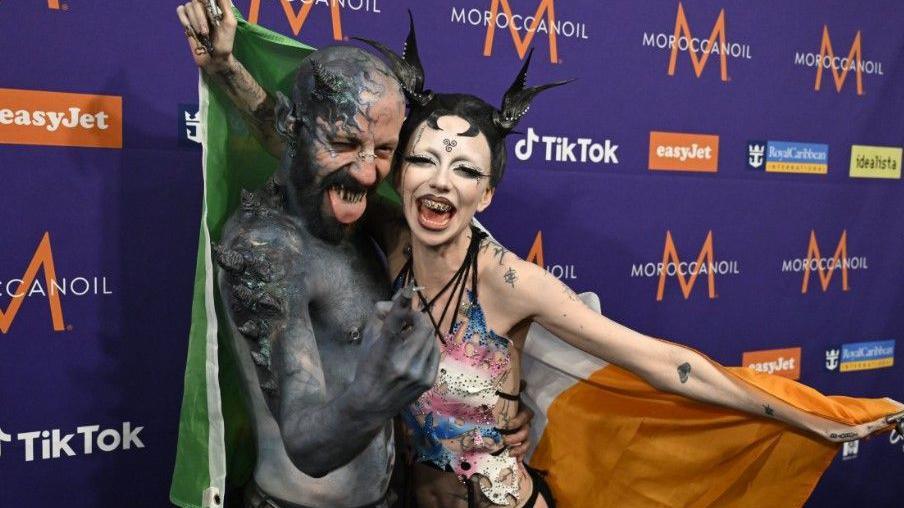
Bambie Thug is the first Irish contestant to reach the final since 2016
Who is Bambie Thug?
Ireland "sent the witch" in this year's bid to regain some former Eurovision glory.
Bambie Thug, a self-described queer, "ouija popstar", who uses the non-binary personal pronouns they and them, with their genre-defying Eurovision entry Doomsday Blue.
Bambie Thug became the first Irish entry to qualify for a Eurovision Grand Final in six years.
Doomsday Blue - what’s in the song?
The song entry, Doomsday Blue, attempts to “showcase all the facets of myself like spoken word poetry, singing, jazzy crooning, metal, screaming, I squeeze it all in," Bambie said.
The song "talks about mental health up and downs, you know, it's the human experience. In three minutes, " said Bambie.
‘A heavy year’
Bambie described this year's competition to be a "heavy" one.
More than 400 Irish artists have signed a petition urging Bambie to withdraw.
The run-up to the contest has been characterised by opposition to Israel's participation, amid concerns over the humanitarian cost of the war in Gaza.
But, Bambie maintained that pro-Palestinian representation is important in this year’s competition.
Bambie told reporters they were "ordered" to remove political gestures from their outfit ahead of the semi-final performance.
Their costume had originally included an ancient Celtic writing known as Ogham - which they said had spelt "ceasefire" and "freedom for Palestine".
When are the Eurovision 2024 finals?
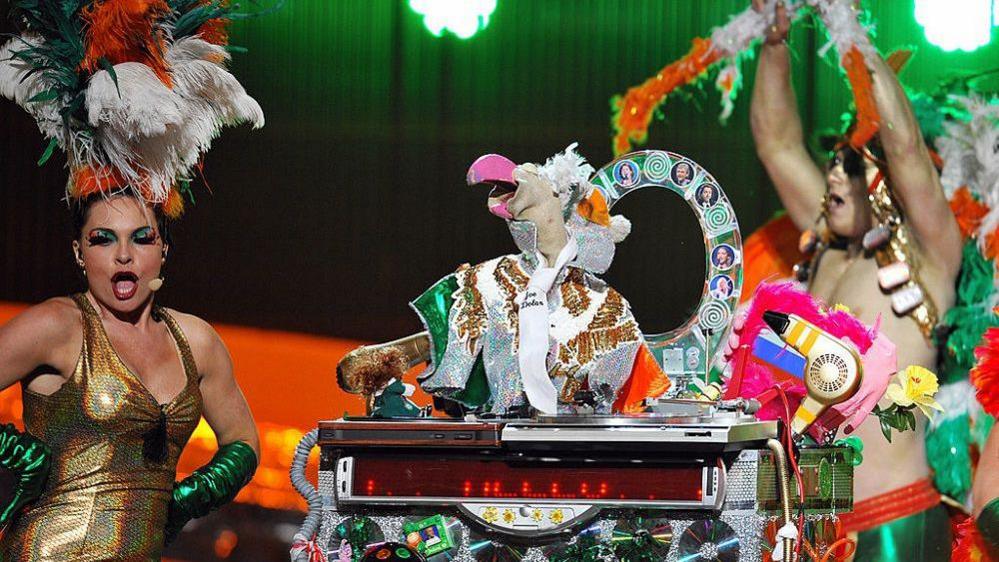
Ireland’s 2008 entry Dustin the Turkey resulted in some ruffled feathers
Saturday May 11 is the date for the final of the 68th Eurovision contest taking place in Malmo, Sweden.
This is the seventh time the contest has been held in Sweden, and the third time in Malmo.
The first semi-final took place on Tuesday 7 May, and the second semi-final is scheduled to take place on Thursday 9 May.
Ireland have qualified for the Eurovision final for the first time since 2018.
Sweden, France, Germany, Italy, Spain and the UK are guaranteed places in the final, so do not compete in either semi-final.
Austria, Denmark, Greece and Israel are among the 16 countries taking part in the second semi-final on Thursday.
Other major titles in the final stages include popstar Olly Alexander who is representing the UK with his song Dizzy.
Both semi-finals and the grand final will be broadcast live on BBC One, BBC Radio 2, BBC iPlayer and BBC Sounds.